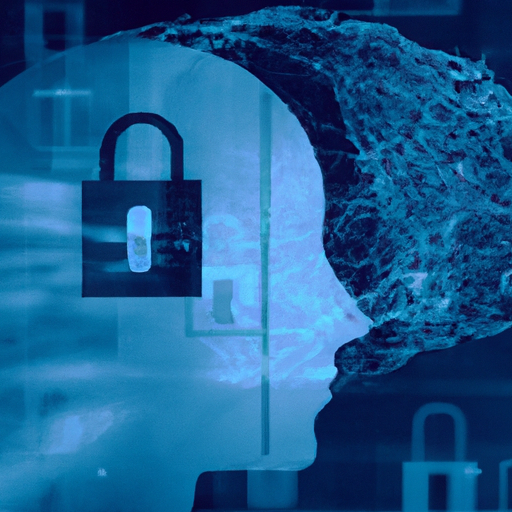Have you ever wondered about the potential impact of artificial intelligence (AI) on our privacy and security? With the rapid advancements in AI, it is becoming increasingly important to understand the potential implications it may have on our personal information and safety. From facial recognition technology to smart home devices, AI is revolutionizing the way we interact with the world and raising concerns about the potential threats it poses to our privacy. In this article, we will explore the possible implications of AI on privacy and security, shedding light on the risks and challenges we may face in this increasingly interconnected world.

1. Introduction to AI
1.1 Definition of AI
Artificial Intelligence (AI) refers to the development of computer systems that can perform tasks that typically require human intelligence. These systems are designed to process and analyze large amounts of data to make decisions, learn from experiences, and adapt to new information.
1.2 Importance of AI
AI has become increasingly important in various industries and sectors. It has the potential to revolutionize healthcare, transportation, finance, and many other fields. AI can enhance productivity, efficiency, and accuracy, leading to improved outcomes and better decision-making processes.
1.3 Overview of AI Applications
AI technology is being used in a wide range of applications, including natural language processing, machine learning, computer vision, and robotics. It is powering virtual assistants, autonomous vehicles, recommendation systems, fraud detection tools, and personalization algorithms. The versatility and potential of AI have made it a transformative force in today’s digital era.
2. Privacy Concerns with AI
2.1 Data Collection and Storage
One of the main privacy concerns with AI is the collection and storage of personal data. AI systems rely heavily on vast amounts of data to learn and make predictions. However, this reliance raises concerns about the privacy and security of individuals’ personal information. Unauthorized access, data breaches, and improper handling of data can lead to significant privacy risks.
2.2 Personal Information Exposure
AI systems often require access to extensive personal information to function effectively. This includes data such as location, browsing history, and social media activity. The collection and potential exposure of this data raise concerns about individuals’ privacy and the potential for misuse or abuse.
2.3 Algorithmic Bias and Discrimination
AI systems can inadvertently exhibit bias and discrimination due to the data they are trained on or the algorithms used. This can result in unfair or discriminatory outcomes in areas such as hiring, lending, and law enforcement. The reliance on AI without proper checks and balances can exacerbate existing social inequalities and lead to privacy infringements.
3. Security Risks Associated with AI
3.1 Cyberattacks and Hacking
AI systems are not immune to cyberattacks and hacking attempts. Malicious actors can exploit vulnerabilities in AI systems to gain unauthorized access, steal data, or manipulate the system’s outputs. The increasing complexity and interconnectedness of AI technologies create new avenues for cyber threats, making security a critical concern.
3.2 AI Malfunction and Manipulation
Like any technology, AI systems are not infallible and can experience malfunctions or manipulations. Errors in AI algorithms or intentional tampering can have severe consequences, ranging from misinformation propagation to physical harm. Ensuring the security and integrity of AI systems is vital to prevent malicious exploitation.
3.3 Unauthorized Access to AI Systems
Unauthorized access to AI systems can lead to various security risks. Unscrupulous actors may attempt to gain control of AI systems to manipulate their outputs or use them for malicious purposes. Protecting the confidentiality, integrity, and availability of AI systems is essential to prevent unauthorized access and maintain security.
4. AI and Surveillance
4.1 Government Surveillance
AI technologies have enabled governments to enhance their surveillance capabilities. This raises concerns about the potential infringement on individuals’ privacy rights. Mass surveillance systems, such as facial recognition and predictive policing, can have far-reaching implications for civil liberties and personal privacy.
4.2 Facial Recognition Technology
Facial recognition technology, powered by AI, has been widely adopted by both private and public entities. However, its use is surrounded by ethical concerns regarding privacy invasion and potential misuse. Facial recognition systems can identify individuals without their consent, raising questions about the control individuals have over their own biometric data.
4.3 Ethical Considerations
The use of AI in surveillance raises ethical considerations regarding the balance between security and privacy. Striking the right balance is crucial to ensure that AI systems are used responsibly, respecting individuals’ rights while addressing legitimate security concerns. Balancing privacy, ethics, and security requires comprehensive regulations and robust ethical frameworks.

5. Legal and Regulatory Issues
5.1 Data Protection Laws
With the increasing reliance on AI and the vast amounts of personal data being processed, data protection laws become crucial for safeguarding individuals’ privacy. Regulations such as the General Data Protection Regulation (GDPR) in Europe aim to ensure transparency, consent, and accountability in the collection, use, and storage of personal data.
5.2 Intellectual Property Rights
AI poses challenges to intellectual property laws as it blurs the line between human creativity and machine-generated outputs. Determining ownership and rights in AI-generated works and inventions raises legal complexities that need to be addressed to incentivize innovation while protecting creators’ rights.
5.3 Accountability and Liability
The accountability and liability framework for AI systems is still evolving. Questions arise regarding who is responsible if an AI system causes harm or infringes on privacy rights. Clear guidelines, regulations, and standards are necessary to establish accountability and allocate responsibility among developers, operators, and users of AI systems.
6. Impact on Individuals
6.1 Loss of Privacy
The growing presence of AI in everyday life poses challenges to personal privacy. Constant data collection, profiling, and surveillance erode individuals’ ability to control their personal information. The loss of privacy can have profound implications on autonomy, freedom of expression, and individuality.
6.2 Increased Cybersecurity Threats
AI’s role in cybersecurity is significant, both in defending against threats and being used as a tool for cybercriminals. As AI evolves, so do the tactics used by cybercriminals. The increasing sophistication of AI-powered attacks poses significant challenges to traditional security measures, necessitating continuous adaptation and improvement of cybersecurity practices.
6.3 Psychological and Social Implications
AI’s impact extends beyond privacy and security concerns. It affects society’s psychological and social fabric. The reliance on AI can lead to an erosion of trust, a loss of human touch, and the exacerbation of social inequalities. It is essential to consider and address the broader societal implications of AI to ensure a balanced and inclusive future.

7. AI Ethics and Transparency
7.1 Transparent AI Systems
Ensuring transparency in AI systems is essential for building trust and addressing concerns about bias and discrimination. Transparency involves making the decision-making process of AI systems understandable and explainable. Greater transparency allows individuals to hold AI accountable and promotes the development of fair and unbiased AI algorithms.
7.2 Ethical Decision-making in AI
Ethics play a crucial role in AI development and deployment. Ethical decision-making frameworks, such as fairness, accountability, and transparency, must guide the design and implementation of AI systems. Incorporating ethical considerations into the development lifecycle helps mitigate risks and ensures AI is used for the benefit of society.
7.3 Benefits of Ethical AI
Ethical AI holds the promise of enhancing privacy and security while promoting fairness, inclusivity, and social good. By prioritizing ethical considerations, AI can be a force for positive change. Ethical AI systems can empower individuals, protect privacy rights, and contribute to a more equitable society.
8. Mitigating Privacy and Security Risks
8.1 Privacy by Design
Privacy by Design is an approach that considers privacy throughout the entire lifecycle of AI systems. By proactively embedding privacy measures into the design and development process, risks can be minimized. Privacy by Design principles include data minimization, user-centricity, and strong security protocols.
8.2 Secure AI Development
Developers must prioritize the security of AI systems from the outset. Secure coding practices, regular vulnerability assessments, and robust cybersecurity measures are essential to protect against unauthorized access and potential breaches. Ongoing security updates and patches must be applied to maintain the integrity and safety of AI systems.
8.3 Regular Auditing and Monitoring
Regular audits and monitoring are necessary to detect and address any privacy or security vulnerabilities in AI systems. This includes assessing the data being collected and stored, evaluating algorithms for bias and discrimination, and monitoring for unauthorized access or system malfunctions. Regular audits ensure compliance with regulations and best practices.

9. Future Outlook and Recommendations
9.1 Strengthening Regulations
To address the privacy and security implications of AI effectively, governments and regulatory bodies must strengthen existing regulations and develop new ones. This includes reviewing and updating data protection laws, establishing standards for AI usage in surveillance, and promoting international cooperation in regulating AI technologies.
9.2 Public Awareness and Education
Promoting public awareness and education about the implications of AI on privacy and security is crucial. Individuals must understand the risks and their rights to make informed decisions. Educational initiatives, awareness campaigns, and accessible resources can empower individuals to protect their privacy and advocate for responsible AI practices.
9.3 International Collaboration
Given the global nature of AI and its impact on privacy and security, international collaboration is essential. Countries need to work together to establish harmonized regulations, share best practices, and develop frameworks for responsible AI development. Collaboration fosters knowledge exchange and promotes a collective approach to address cross-border challenges.
In conclusion, AI has significant implications for privacy and security. While AI offers immense potential for progress and innovation, it also raises concerns regarding data privacy, algorithmic bias, cybersecurity threats, and surveillance. Addressing these challenges requires proactive measures such as strengthening regulations, promoting transparency and ethics, and prioritizing privacy and security throughout the development lifecycle. By considering the implications of AI on privacy and security, we can harness its benefits while safeguarding individual rights and fostering a secure and inclusive future.













